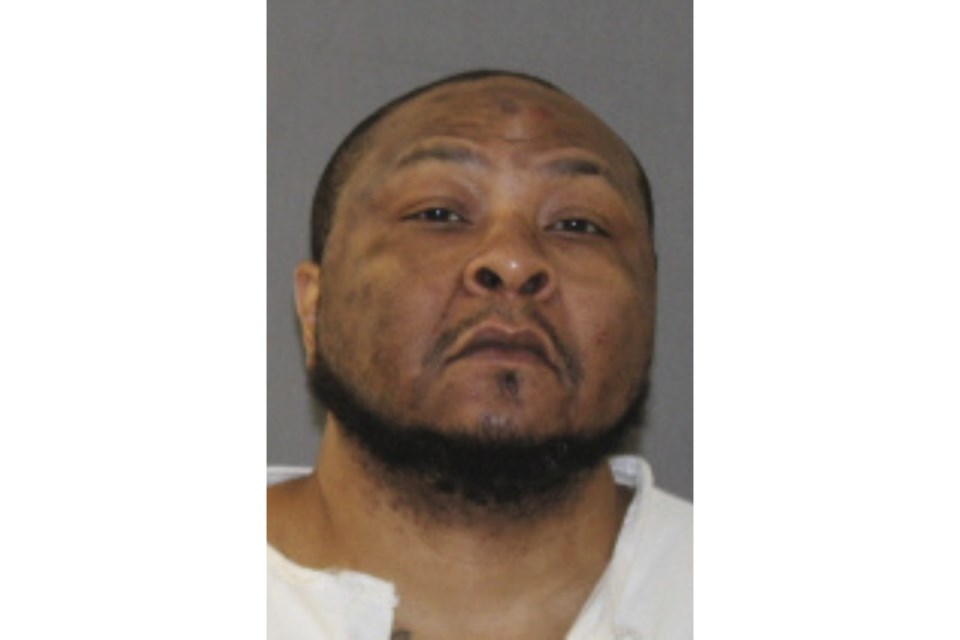HUNTSVILLE, Texas (AP) — A Texas man was executed Tuesday evening, 13 years to the day of a convenience store robbery in which he set an elderly clerk on fire in a Dallas suburb.
Matthew Lee Johnson, 49, received a lethal injection at the state penitentiary in Huntsville and was pronounced dead at 6:53 p.m, authorities said. He was condemned for the May 20, 2012, attack on 76-year-old Nancy Harris, a great-grandmother he splashed with lighter fluid and set ablaze in the suburb of Garland. Badly burned, she died days afterward.
Asked by the warden if he had a final statement, Johnson turned his head and looked at his victim’s relatives, watching through a window a few feet from him.
“As I look at each one of you, I can see her on that day,” he said, speaking slowly and clearly. “I please ask for your forgiveness. I never meant to hurt her.”
Johnson’s execution was the second carried out Tuesday in the United States. Hours earlier in Indiana, Benjamin Ritchie received a lethal injection for the 2000 killing of a police officer.
Tuesday's executions were part of a group of four scheduled within about a week’s time. On May 15, Glen Rogers was executed in Florida. On Thursday, Oscar Smith is scheduled to receive a lethal injection in Tennessee.
Security video captured part of the attack against Harris who, despite her burns, was able to describe the suspect before she died.
Johnson’s guilt was never in doubt. During his 2013 trial, he admitted to setting Harris on fire and expressed remorse.
“I hurt an innocent woman. I took a human being’s life. I was the cause of that. It was not my intentions to -- to kill her or to hurt her, but I did,” Johnson had said.
Johnson also said he had not been aware of what he had done as he had been high after smoking $100 worth of crack. His attorneys told jurors Johnson had a long history of drug addiction and had been sexually abused as a child.
Harris had worked at the convenience store for more than 10 years, living only about a block and a half away, according to testimony from one of her sons. She had four sons, 11 grandchildren and seven great-grandchildren.
Prosecutors said Harris had only been working her Sunday morning shift for a short time when Johnson walked in, poured lighter fluid over her head and demanded money.
After Johnson grabbed the money from the register, he set Harris on fire and calmly walked out of the store, according to court documents. Harris frantically tried to extinguish herself and her clothing, exiting the store and screaming for help before a police officer used a fire extinguisher to douse the flames covering her body. Johnson was arrested about an hour later.
Harris suffered extensive second- and third-degree burns over her head and face, neck, shoulders, upper arms, and leg and was in a great deal of pain in the days before she died, a nurse and doctor testified.
Johnson’s legal team did not pursue any appeals this week with the U.S. Supreme Court, according to David Dow, one of the inmate’s attorneys. Lower appeals courts had previously rejected defense requests to stay the execution, and the Texas Board of Pardons and Paroles on Friday denied Johnson’s request to commute his death sentence to a lesser penalty.
In previous appeals, Johnson’s lawyers had argued his death sentence was unconstitutional because he was improperly determined to be a future danger to society, a legal finding that was needed to sentence him to death. His most recent appeals had argued his execution date had been illegally scheduled.
Johnson was the fourth person put to death this year in Texas, historically the nation’s busiest capital punishment state. Tuesday’s executions in Texas and Indiana brought this year’s total in the U.S. to 18 inmates put to death.
___
Follow Juan A. Lozano: https://twitter.com/juanlozano70
Juan A. Lozano And Michael Graczyk, The Associated Press



